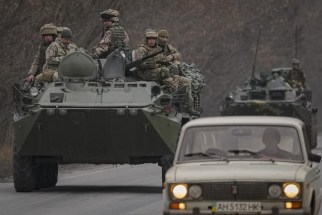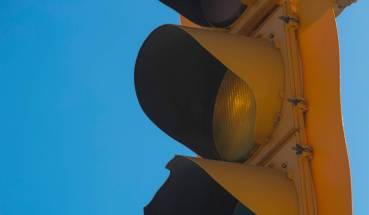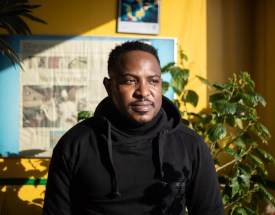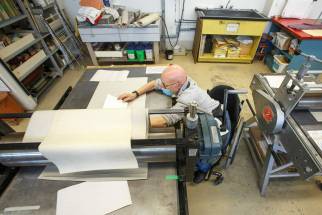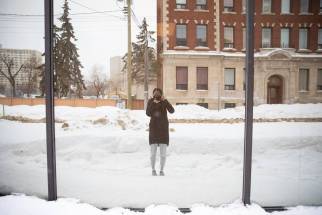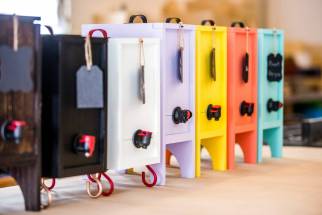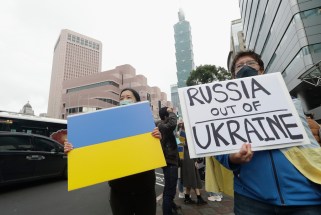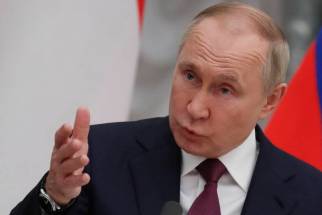Ukrainian people are my people, too
Read this article for free:
or
Already have an account? Log in here »
To continue reading, please subscribe:
Monthly Digital Subscription
$0 for the first 4 weeks*
- Enjoy unlimited reading on winnipegfreepress.com
- Read the E-Edition, our digital replica newspaper
- Access News Break, our award-winning app
- Play interactive puzzles
*No charge for 4 weeks then price increases to the regular rate of $19.00 plus GST every four weeks. Offer available to new and qualified returning subscribers only. Cancel any time.
Monthly Digital Subscription
$4.75/week*
- Enjoy unlimited reading on winnipegfreepress.com
- Read the E-Edition, our digital replica newspaper
- Access News Break, our award-winning app
- Play interactive puzzles
*Billed as $19 plus GST every four weeks. Cancel any time.
To continue reading, please subscribe:
Add Free Press access to your Brandon Sun subscription for only an additional
$1 for the first 4 weeks*
*Your next subscription payment will increase by $1.00 and you will be charged $16.99 plus GST for four weeks. After four weeks, your payment will increase to $23.99 plus GST every four weeks.
Read unlimited articles for free today:
or
Already have an account? Log in here »
Hey there, time traveller!
This article was published 25/02/2022 (1388 days ago), so information in it may no longer be current.
My birthday is Jan. 7 — the same day Ukrainians traditionally celebrate Christmas, according to the Julian calendar.
I know this because my best friend’s family, the Kowalchuks, every year invited me for dinner at their home in Lockport. They would combine their most important day with mine — sharing perogies, cabbage rolls, and gifts alongside singing happy birthday.
In many ways, I was their fourth son — something I value to this day.
This is why I couldn’t look away Thursday when Russian forces invaded Ukraine, for Ukrainians are my people, too.
I spent the day contacting every single Ukrainian-Canadian I knew, expressing my love and asking if there was anything I could do.
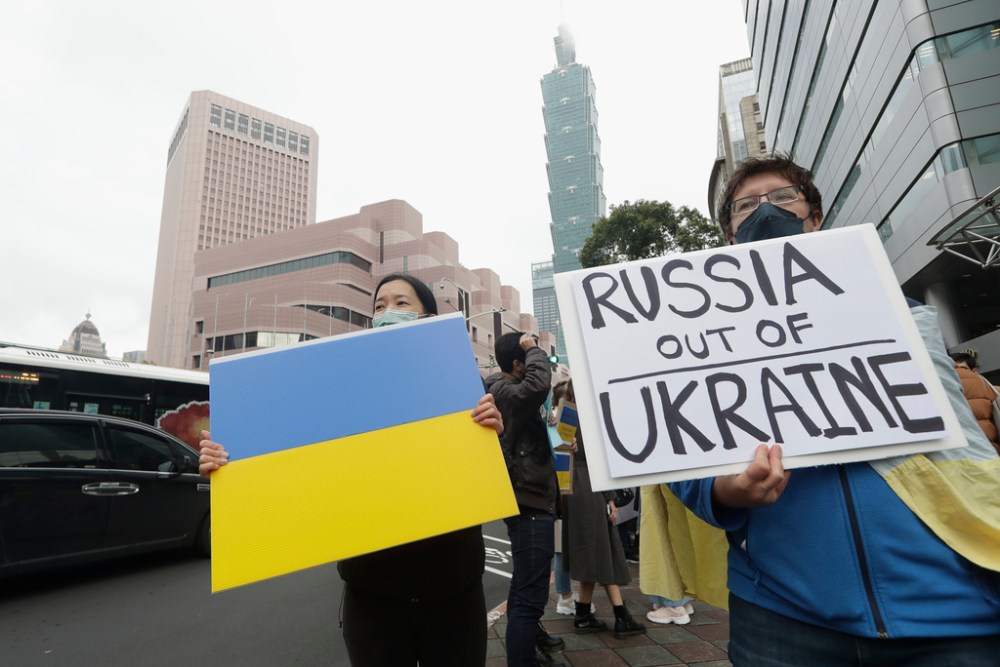
What can one say to another person when a person’s culture, society, and homeland is under attack?
“I’m sorry” doesn’t begin to cut it. How does one talk about murder when it’s happening on the evening news? What can one say when lands are being stolen before our very eyes? Which words do you use that show sensitivity and recognize devastation at the same time?
Turns out there aren’t many words that can describe what’s happening. (Words that can be published here, anyways.)
I was on the phone for a long time. My best friend and his family are only one of about two dozen Ukrainian Canadians I am close to.
My sister-in-law is another. Her family left Ukraine a long time ago, but she broke down in tears talking about the invasion.
My colleague. My ex-girlfriend from high school. My old teacher.
Ukrainians have been coming to Manitoba since the 1890s.
From the first moments they arrived here — just like what happened with Icelanders and other immigrants — Ukrainians relied on the knowledge of Indigenous communities to survive.
Indigenous peoples taught Ukrainians where to find fish, what berries to eat, and how to find food in this place.
In an amazing 2011 study by Maryna Hrymych (published at the University of Manitoba), she documents how “Indians” taught Ukrainians in Manitoba “how to trap, to hunt, and how to make your own moccasins… How to survive.”
By the early 20th century — when my community of Peguis was thriving on its original homelands near what’s now East Selkirk — Ukrainians were neighbours, running farms and businesses all along the Red River to Winnipeg.
Contact between our two cultures resulted in amazing collaborations. Besides a deep love for the land, our peoples share a love for feasting, dancing, beading, braiding, and intricate designs.
For instance, Cree and Anishinaabe people credit Ukrainians for gifting our communities the colourful hustka, which many Indigenous grandmothers wear on their heads today.
Powwow fancy dancers regularly “borrow” moves from Ukrainian dance — repeating similar patterns of rhythm repetition and even moves squat kicks.
I’ve had borscht and bannock more than once… You get the point.
Some Ukrainians also participated in racist acts, too, like advocating for the theft of Peguis land in 1907.
By 1914, more than 170,000 Ukrainians had settled in Canada, with the majority settling throughout the Prairies.
The reason this is so accurately known is because Ukrainians were persecuted during the First World War, feared because they were thought to be sympathizers of the Austro-Hungarian Empire.
Ukrainians share experiences of racism and oppression with Indigenous peoples, too.
The connections between Ukrainians and Indigenous peoples is so wide and deep, I’d never be able to do it justice here, so I’ll just say it’s a big part of today’s Manitoba.

When I walk with the Mama Bear Clan volunteer patrol, I see Ukrainian Orthodox churches throughout the North End and North Point Douglas — the original communities that built this city. Most are as old as the city itself.
I meet dozens of people who have a Ukrainian and Indigenous parent.
I patrol past Ukrainian book shops. A co-op. A bakery… You get the point.
Winnipeg is not the only place where Ukrainian and Indigenous cultures have fused and found a home together.
In 2018, Edmonton’s Shumka dance company performed with local Indigenous troupe Running Thunder on a series of collaborative displays featuring more than 100 knowledge keepers and artists showcasing the shared history between Indigenous and Ukrainian peoples in their city.
In Calgary, there is an Indigenous Ukrainian Relationship Building Initiative intended to advance knowledge about, explore, and on Ukrainian Canadian history and shared Indigenous-Ukrainian pasts.
Ukrainian people are my people.
This is why I can’t look away when my relations are being bombed, attacked, and removed from their homes.
This is a pain, a trauma, a genocide I know all too well.
A destruction we all must stand up against. Together. In this place.
As we have before. As we will again.
niigaan.sinclair@freepress.mb.ca

Niigaan Sinclair is Anishinaabe and is a columnist at the Winnipeg Free Press.
Our newsroom depends on a growing audience of readers to power our journalism. If you are not a paid reader, please consider becoming a subscriber.
Our newsroom depends on its audience of readers to power our journalism. Thank you for your support.
History
Updated on Friday, February 25, 2022 9:22 PM CST: Changes babushka to hustka
Updated on Sunday, February 27, 2022 10:50 AM CST: Corrects date reference.

